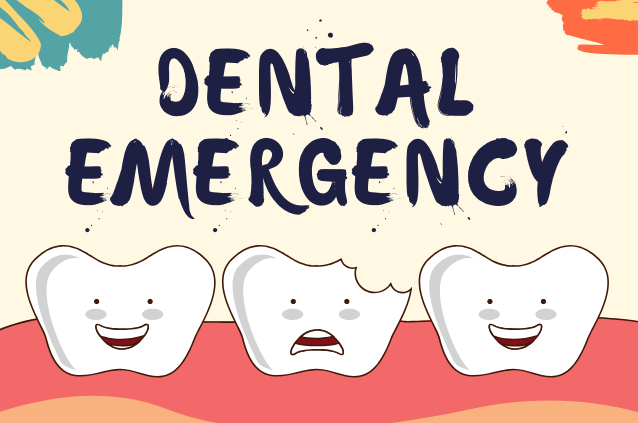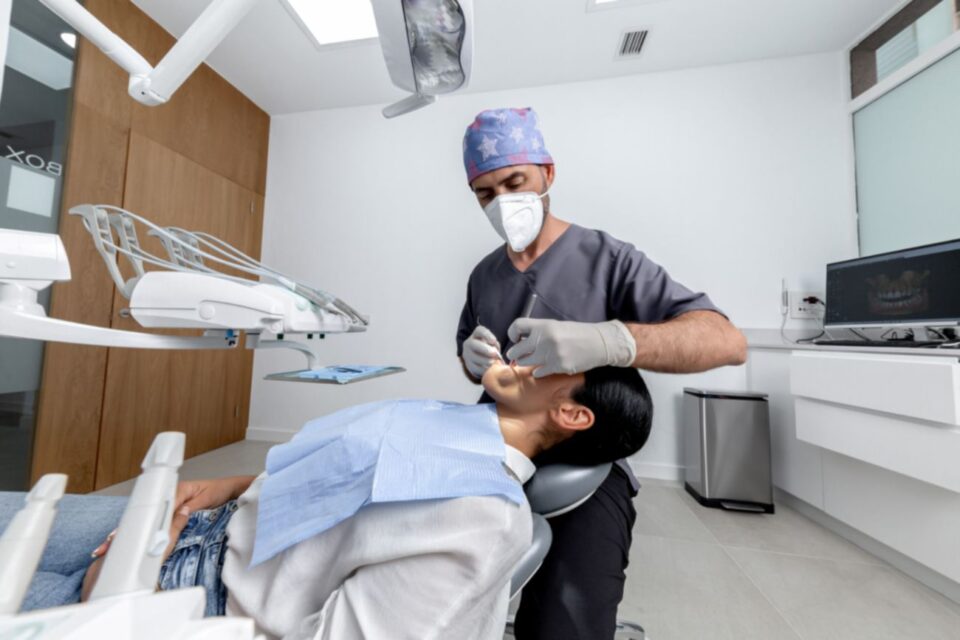The Importance of Having an Emergency Dentist Edmonton on Speed Dial
The Importance of Having an Emergency Dentist Edmonton on Speed Dial
Blog Article
Emergency Situation Dental Care: Rapid Relief for Tooth Discomfort and Accidents
Emergency oral treatment is an important element of maintaining dental health, particularly when unanticipated occurrences take place or extreme discomfort occurs. Recognizing the indications that demand prompt interest can substantially affect end results, preventing additional issues. From acute toothaches to stressful injuries, acknowledging the urgency of these situations is paramount. Nevertheless, several people stay uncertain concerning the particular circumstances that require punctual treatment. This obscurity often results in delays in looking for help, which can exacerbate the problem handy. Exploring the common sorts of oral emergency situations and the proper feedbacks is necessary for educated decision-making during these defining moments.
Understanding Dental Emergency Situations
Oral emergencies regularly occur without warning, demanding punctual attention to minimize pain and avoid more difficulties. Understanding the nature of oral emergency situations is essential for both clients and health care carriers to ensure effective administration. These circumstances can range from intense pain and trauma to infections that call for instant treatment.
One key element of oral emergency situations is acknowledging the signs that demand urgent care. Signs such as severe toothaches, swelling, or bleeding can indicate underlying issues that, if left untreated, might lead to major illness. Furthermore, injury to the mouth, whether from sports injuries or mishaps, can cause damage to teeth and bordering cells, demanding quick assessment and treatment.
Understanding the necessity and possible effects of oral emergency situations encourages individuals to make informed decisions, ultimately leading to better end results and improved dental health and wellness (emergency dental edmonton). By focusing on timely interest to oral situations, individuals can lessen discomfort and guard their general wellness.
Common Kinds Of Dental Emergency Situations
Encountering various sorts of dental emergencies needs a thorough understanding of the conditions that necessitate immediate care. Common dental emergency situations can considerably impact a client's oral health and wellness and general wellness.
Extreme discomfort often shows an underlying problem that requires prompt treatment. Another usual emergency is a broken or chipped tooth, typically triggered by injury or extreme force.
Knocked-out teeth stand for a critical emergency, where instant activity is vital for prospective reimplantation. Preservation of the tooth in a suitable medium, such as milk or saline, is important while looking for professional assistance.
In addition, oral abscesses, identified by local infection, existing as swelling and discomfort. These require urgent treatment to avoid the spread of infection.
Finally, soft cells injuries, including lacerations or cuts to the gums, cheeks, or tongue, can additionally demand emergency care. Resolving these conditions promptly is critical in reducing complications and making sure ideal dental health and wellness.
When to Look For Immediate Care

Crashes causing dental trauma-- such as a knocked-out tooth, fractured or cracked teeth, or injuries to the gums-- need immediate treatment (emergency dental edmonton). In the situation of a knocked-out tooth, time is essential; it needs to be returned or kept in milk or saline and taken to the dentist within an hour for the finest chance of effective reattachment
Furthermore, prolonged bleeding from the mouth or any type of dental lacerations that do not quit may represent a more significant problem requiring prompt treatment. Dental swelling, especially if it affects breathing or ingesting, is another warning. On the whole, if you experience any type of abrupt adjustments in your oral health or physical pain that rises promptly, look for prompt dental care to minimize prospective complications and ensure your health.
Managing Pain in the house
Effective monitoring Going Here of dental discomfort in your home can considerably minimize discomfort while awaiting professional treatment. A number of techniques can be employed to attend to pain and lower inflammation effectively.
Over-the-counter anesthetics, such as ibuprofen or acetaminophen, can supply short-term alleviation. Make certain to adhere to dose directions on the product packaging to prevent unfavorable results. Using a cold compress to the beyond the cheek can additionally assist numb the location and decrease swelling. This approach is especially efficient within the very first 24-hour following an injury or beginning of pain.
Furthermore, preserving oral health is essential. Carefully washing the mouth with cozy seawater can help cleanse the affected area and lower irritability. Clove oil, known for its natural analgesic buildings, can be used moderately to the periodontal area making use of a cotton round for localized relief.
Avoiding particular foods-- such as those that are hard, crispy, or cold or extremely hot-- can protect against worsening of pain. Making certain appropriate hydration and rest will support general healing while waiting for specialist dental care. These natural home remedy can offer a substantial degree of alleviation up until a dental practitioner can be consulted.

What to Anticipate at the Dentist
A see Going Here to the dental expert can commonly give stress and anxiety, however recognizing what to anticipate can reduce concerns and facilitate a smoother experience. Upon arrival, you will usually examine in at the function, where you might require to complete forms regarding your case history and dental worries. Following this, an oral aide will assist you to the assessment space and take essential radiographs, if applicable.
Once resolved, the dentist will conduct a thorough assessment of your periodontals and teeth. If you are experiencing discomfort or pain, be sure to communicate this clearly, as it will help the dental expert tailor the evaluation to your requirements. Depending upon the findings, they may suggest treatments, which can involve filling cavities, executing removals, or other procedures.
After the procedure, the oral group will provide aftercare guidelines to aid handle your healing efficiently. Remember, open interaction with your dentist is essential to making certain a positive experience and attaining optimal dental wellness.
Final Thought
In final thought, emergency situation oral treatment plays a critical duty in reducing tooth discomfort and attending to immediate dental problems. People are motivated to acquaint themselves with reliable helpful hints discomfort monitoring strategies at home, while also being prepared for the treatments that might be undertaken by dental professionals during emergencies.
Emergency dental treatment is a critical part of keeping oral health, particularly when unanticipated occurrences happen or severe discomfort develops.Dental emergencies regularly develop without warning, demanding punctual interest to mitigate discomfort and avoid further difficulties.In final thought, emergency oral care plays an essential role in reducing tooth discomfort and attending to immediate dental problems. Recognizing the indicators of dental emergency situations and comprehending when to look for instant treatment can substantially impact dental health and wellness end results. People are encouraged to acquaint themselves with reliable pain management approaches at home, while additionally being prepared for the treatments that may be carried out by dental professionals during emergency situations.
Report this page